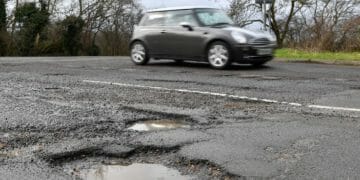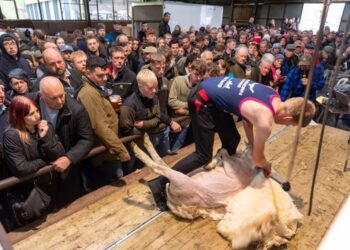
While there was little of specific interest for agriculture in the recent Autumn Statement, there were some announcements in the Chancellor’s raft of new measures that may impact farm businesses. In other areas – notably Inheritance Tax – (IHT) announcements that were speculated did not materialise.
Full expensing
This is a policy that gives limited companies full tax relief on the cost of plant and machinery.
Traditionally, tax relief was given by way of capital allowances, which spread the tax relief over a number of years. This was previously announced as a temporary measure which was due to end in 2026 but will now become permanent. So, will Cumbrian farmers and other small businesses benefit from this?
- Full expensing is only available to companies, so self-employed businesses cannot claim.
- We already have a system where the first £1 million of expenditure qualifies for 100 per cent tax relief, known as the Annual Investment Allowance (AIA). This is available to all businesses, not just companies. As a result, it is only businesses that regularly spend more than £1 million that will benefit from full expensing.
- For some businesses, this is a tax deferral rather than a tax saving. Whilst 100% relief is given when the asset is purchased, there may be a clawback when the asset is sold or the business ceases.
National Insurance Contributions (NICs)
Jeremy Hunt also announced that employees will see a 2 per cent cut in their Class 1 NICs from 12 per cent to 10 per cent, effective from the beginning of January 2024.
Meanwhile, self-employed individuals will receive a 1 per cent cut in their Class 4 NICs from 9 per cent to 8 per cent from April 2024.
At the same time, Class 2 NICs, payable at a fixed rate of £2.45 per week – which is the way that self-employed individuals qualify for the State Pension and other state benefits – are being abolished from April 2024.
We await clarification from HMRC as to how individuals with low profits will receive a NIC credit towards their state pension under the new system.
National Living Wage
An increase to National Living Wage (NLW) will impact almost all businesses employing staff, despite no change to the amount of NICs payable by businesses.
The NLW will increase by almost 10 per cent to £11.44 per hour in April 2024 and will be payable to employees from the age of 21. This will increase the cost of employing staff at a time when profits are falling for many farming businesses.
Inheritance Tax
There were strong rumours in the lead-up to the Autumn Statement that the Chancellor was going to announce big cuts to Inheritance Tax.
In the event, there was no announcement, and we don’t know if this has been shelved, or if it has been delayed until the spring 2024 Budget, which is likely to be the last one before the next General Election.
Personal tax thresholds and allowances
The personal allowance and income tax thresholds have been frozen since 2022, and as a result, millions more people are becoming taxpayers and higher rate taxpayers as the thresholds have not increased in line with pay.
Again, it is possible that an announcement will be made to increase personal allowances or tax thresholds in the Spring 2024 Budget, to take effect from April 2025.
If you would like to discuss how the changes announced in the Autumn Statement could impact your business, please get in touch. Call 0808 144 5575 or email help@armstrongwatson.co.uk
































